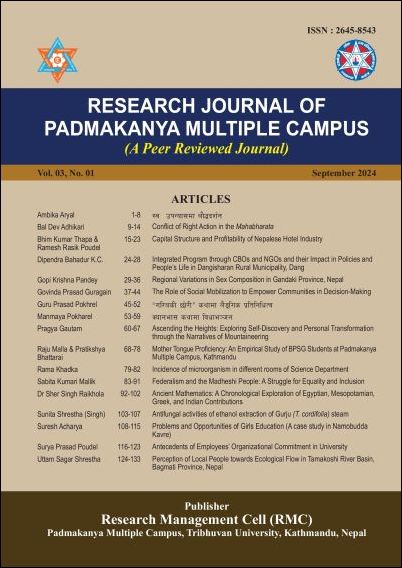Integrated Program through CBOs and NGOs and their Impact in Policies and People’s Life in Dangisharan Rural Municipality, Dang
DOI:
https://doi.org/10.3126/rjpkmc.v3i1.71895Keywords:
Interventions, Relevancy, Program, Beneficiaries, OrganizationsAbstract
The key aim of this study is to look into the impact of policies and programs conducted by different non-government organizations in the study area. The exploration of gap between policy and practice is the main area of research. What are the best practices, skills and how they (non- governmental organization) are using this knowledge solving the major problems of poor and vulnerable community is also the issue of research. Method of study was purely purposive non- probability judgmental sampling techniques; qualitative data saturation procedure was adopted so that it would help to make valid understanding of non-government organization's activities. For this inquiry; 42 (forty-two) sample respondents were selected from 420 beneficiaries’ households (10%) specially, the elected bodies like ward chairman, mayor, vice mayor, ward members, local government officers, representative of NGOs/CBOs and social workers. To achieve the objective of the study the researcher frequently visits of the targeted area to explore and find out the impacts of integrated development program conducted by CBOs and NGOs in the Dangisharan Rural municipality, ward no 3, Dang district. The projects were found to be relevant and have positive impact on the way of life of people. On the other hand, local women were engaged in different income generating activities. However, they do not have sustainability unless funding or donor is continued or beneficiaries are developed capable and competent to self-sustain.




